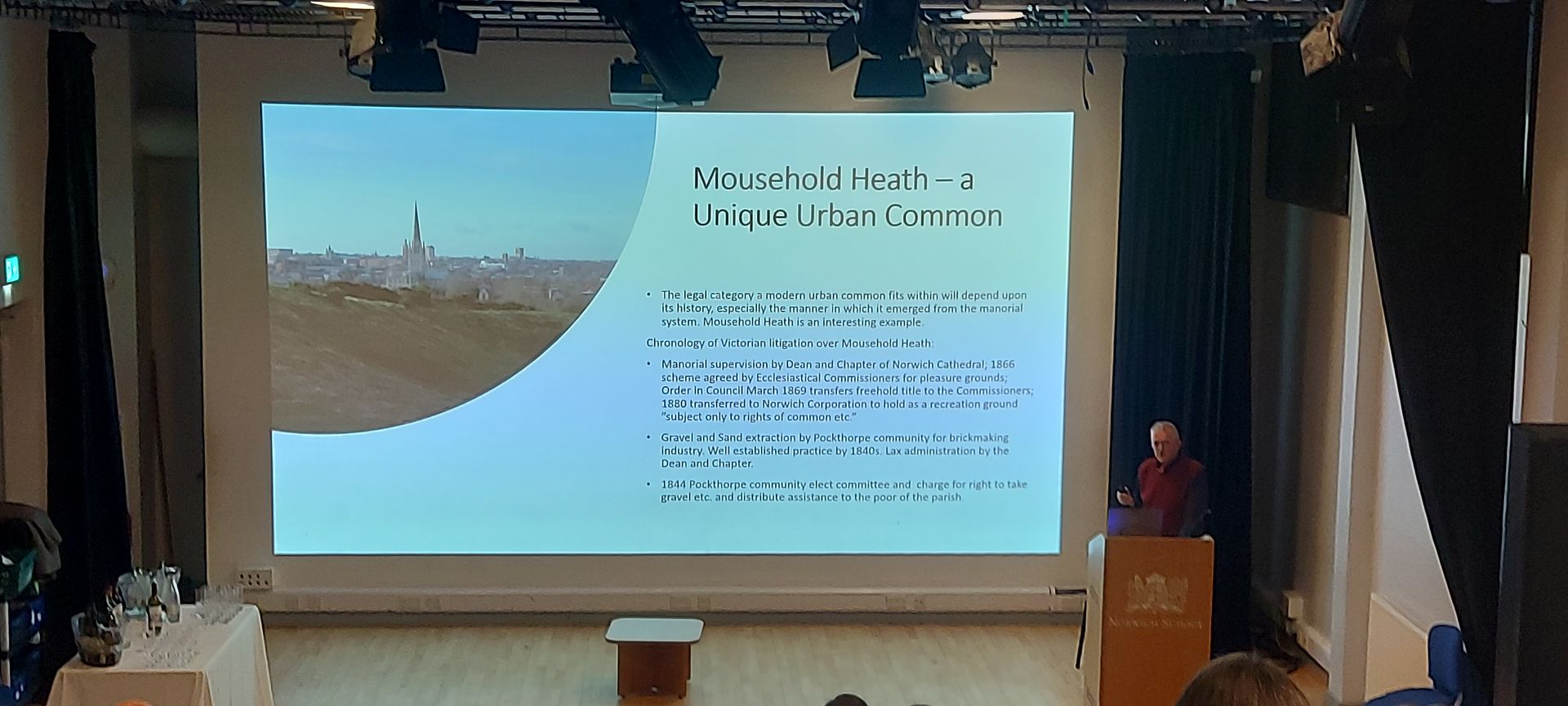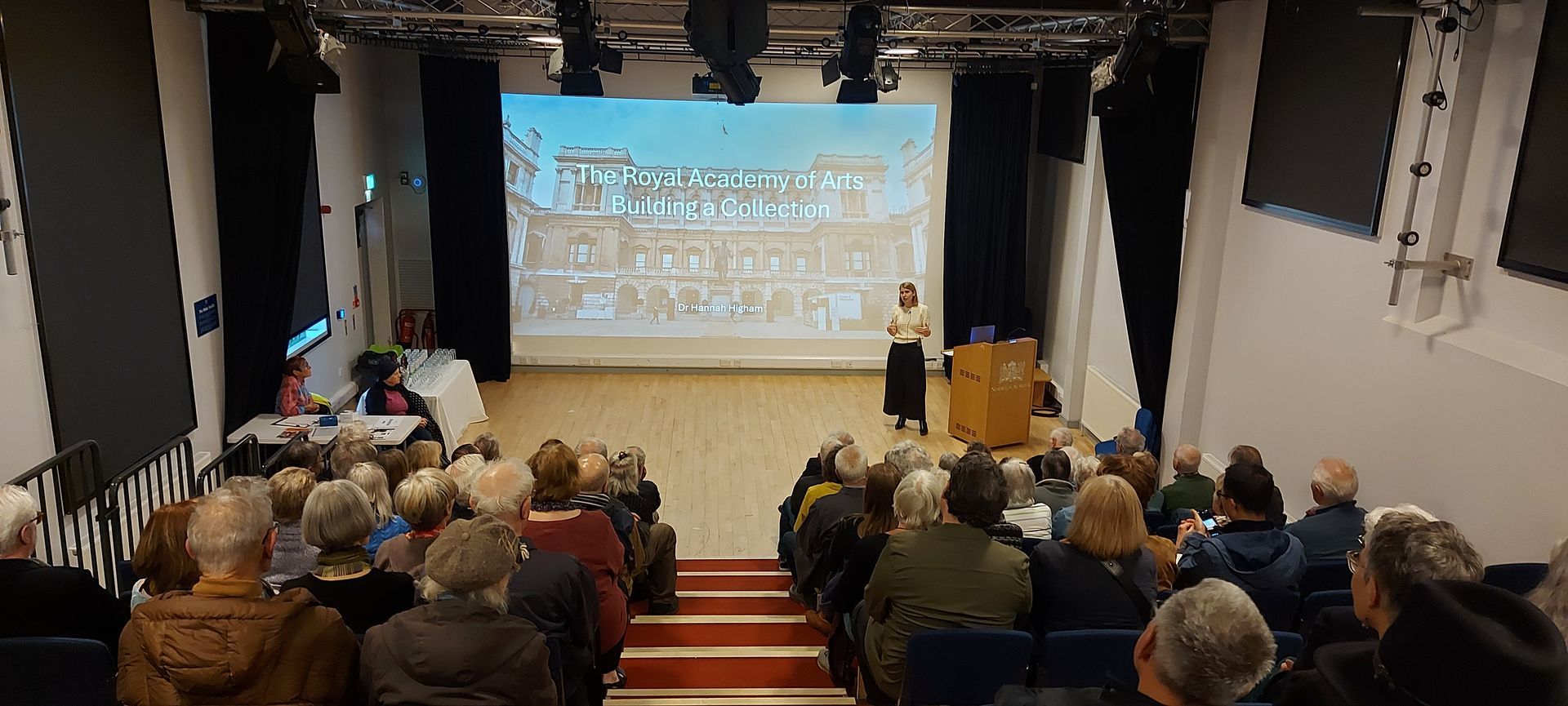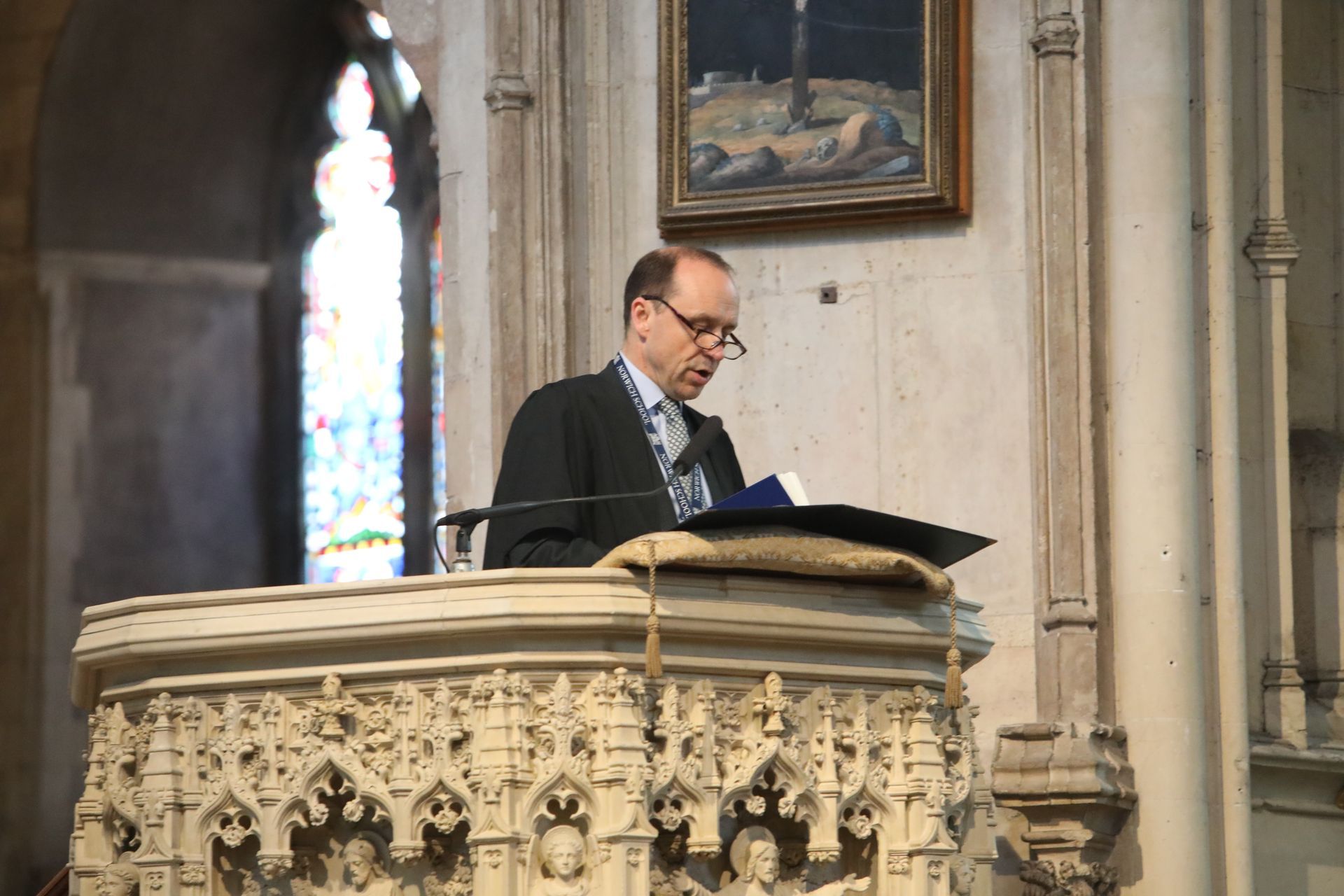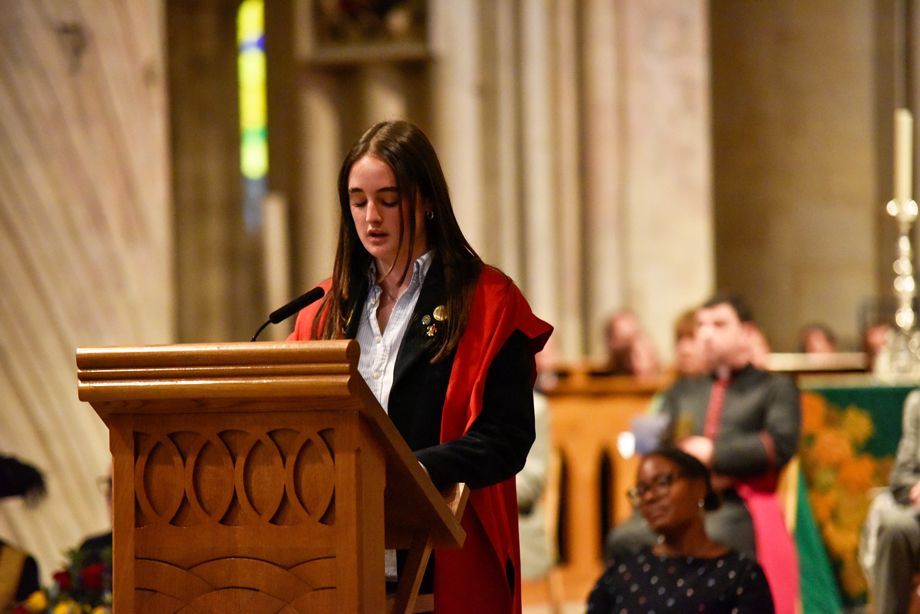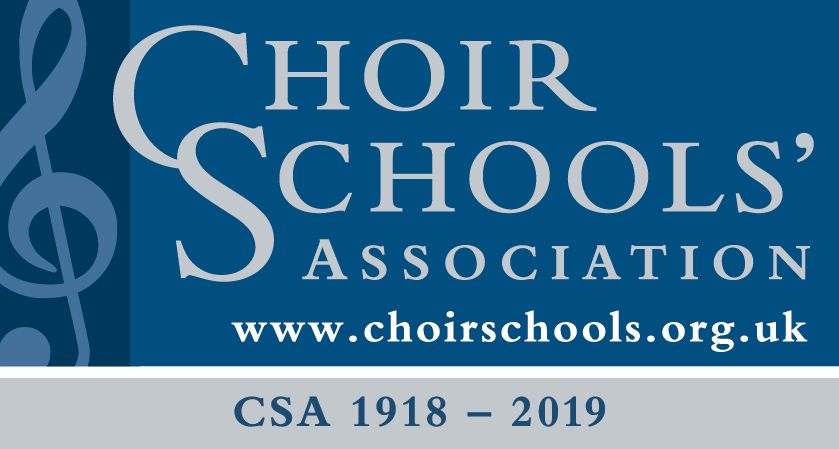Honey and Vinegar - Rev Child Addresses Pupils
January 31, 2025
‘You have heard that it was said, “Love your neighbour and hate your enemy.” But I tell you, love your enemies and pray for those who persecute you, that you may be children of your Father in heaven. He causes his sun to rise on the evil and the good, and sends rain on the righteous and the unrighteous. If you love those who love you, what reward will you get? Are not even the tax collectors doing that? And if you greet only your own people, what are you doing more than others? Do not even pagans do that? Be perfect, therefore, as your heavenly Father is perfect. (Matthew 5:43-48)
You may have noticed that as the year goes along I give little mentions of the church calendar – so for instance, I’ve let you know recently that we’re in the Epiphany season. (My reasoning is that if you’re often in a cathedral, as we all are, you might as well know what’s going on round here.) But now and again a day comes along in the church calendar that, in all honesty, I have no idea about. Today is one such day. Friday 31st January is the commemoration day of John Bosco, priest, founder of the Salesian Teaching Order, 1888.
I have never come across the Salesian teaching order, and I’m not even sure if I’m pronouncing that right. Until I looked into it, I had no idea who John Bosco was. As it turns out, he was an Italian priest, educator and writer. (That made me sit up a bit because those are things I’m interested in.) He lived during Europe’s industrial revolution, a time of progress, but also a time when the number of street children was increasing in the cities – think Oliver Twist.
John Bosco became famous for his approach to education. The first principles for schools across Europe at the time were strict rules and punishment; but John Bosco’s starting point was love, care and kindness. That’s what he believed the poor and the orphaned needed more than anything else. He believed that if they were shown goodness, they would take on that goodness themselves.
This is a philosophy which many people have considered down the years. As early as 600BC the Greek storyteller Aesop told a fable about the North Wind and the Sun, who are arguing about which of them is stronger. They spot a traveller passing by and decide that whoever can remove his cloak is the strongest. The North Wind howls as hard as he can, but the traveller only wraps his cloak tighter around him. Then the sun shines brightly and warmly, so that the traveller is persuaded to take off his cloak. The sun wins; the moral of the story is that gentleness and persuasion are more effective than force and aggression.
Six centuries later you come to the Bible passage we heard read earlier, where Jesus says something which can be hard to grasp – ‘Love your enemies; and pray for those who persecute you.’ As hard as this may be, Jesus points out that this is what God does. God is kind and gives good gifts to everyone whether or not they are honourable.
And then centuries later you come to groups inspired by the teaching of Jesus, groups like the Salesians (I did find out something about them in the end). Their founder came up with this memorable line: ‘you will catch more flies with a teaspoon of honey than you will with a barrelful of vinegar’. And this is the group that John Bosco ended up being a part of.
So what does any of this have to do with you? First of all, you owe a debt to educationalists like John Bosco. If you find in your lessons today that you are being encouraged more than scolded, if your teachers ever seem to care about you and want you to do well, that’s because our school agrees fundamentally that people need care and kindness to thrive. Of course that doesn't mean that your teachers will keep smiling beatifically if you misbehave. But it does mean that over the whole course of your time here you can expect to feel valued and supported.
Secondly, you will all go out into the world one day as adults, and you will be in positions where you yourself will have the choice to encourage or to scold. In that future moment, where perhaps someone who works for you has behaved badly, or your colleague’s performance is disappointing, or a child you are teaching is getting it wrong – in that moment, will you act on the instinct to strike out and punish, or will you take some of the wisdom of Aesop, and Jesus, and John Bosco?

